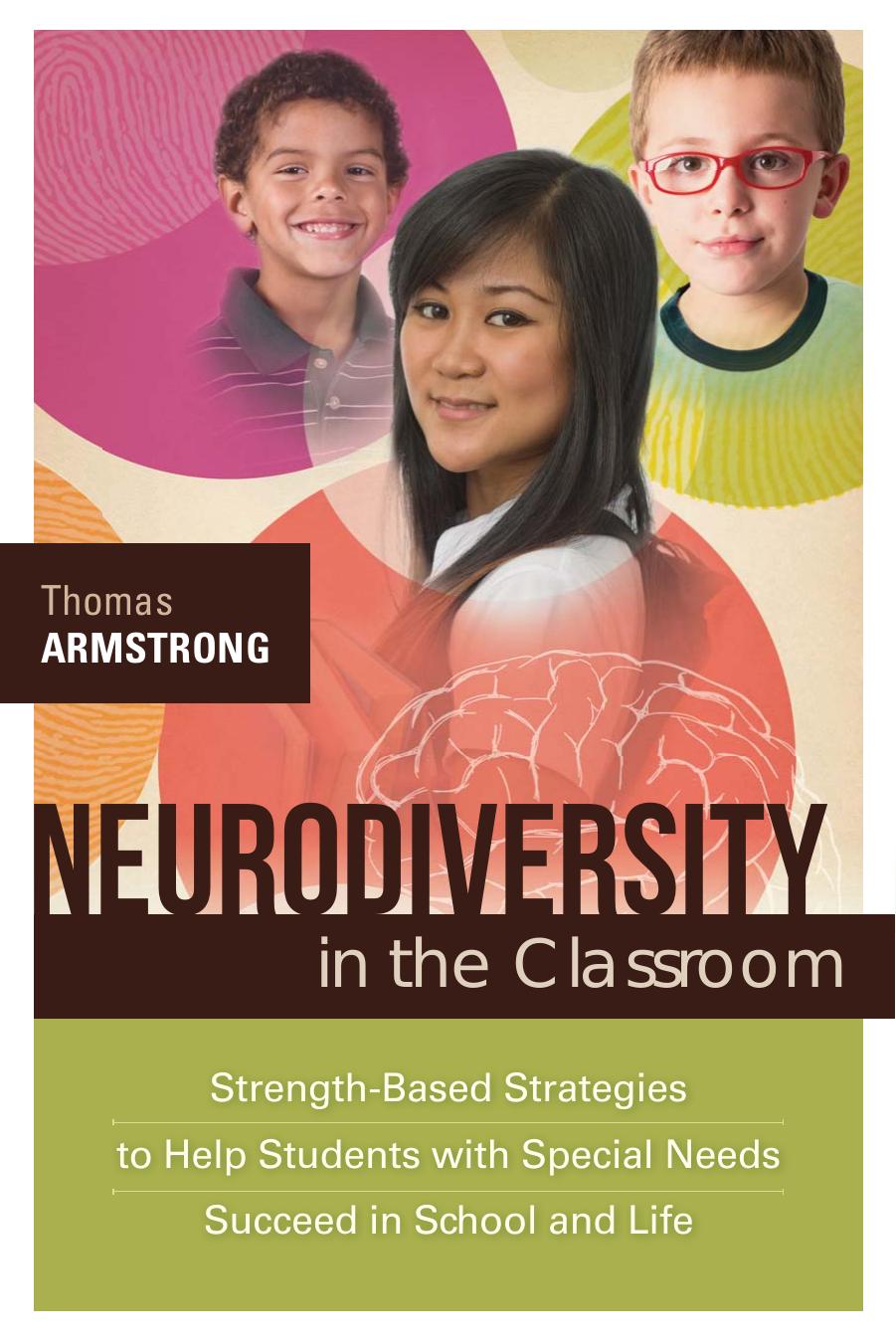Neurodiversity in the Classroom: Strength-Based Strategies to Help Students with Special Needs Succeed in School and Life by Thomas Armstrong

Author:Thomas Armstrong [Armstrong, Thomas]
Language: eng
Format: mobi, pdf
Tags: Education
ISBN: 9781416615408
Publisher: Association for Supervision & Curriculum Development
Published: 2012-12-06T16:00:00+00:00
Persons with Down syndrome have been consistently cast as friendly and charming, with disarming smiles. Indeed, many toddlers and children with Down syndrome smile more often than their typically developing or mentally retarded peers … parents continue to spontaneously use upbeat, happy descriptors of their children. In this vein, several articulate young adults with Down syndrome have asked that their syndrome be renamed … "Up syndrome." (Dykens, 2006, p. 189)
One recent survey of nearly 300 persons with Down syndrome age 12 and older indicated that 99 percent were happy with their lives, 97 percent liked who they were, and 96 percent liked how they looked (Skotko, Levine, & Goldstein, 2011). Other studies have demonstrated that individuals with Down syndrome possess strong visual-motor skills (Wang, 1996) and well-developed nonverbal social interaction skills (Mundi, Sigman, Kasari, & Yirmiya, 1988), shared humor and laughter (Reddy, Williams, & Vaughan, 2001), and spatial short-term memory (Visu-Petra, Benga, Tincas, & Miclea, 2007).
People with Williams syndrome, by contrast, display a very different pattern of strengths. Williams syndrome is a rare form of intellectual disability that affects approximately 1 in every 10,000 births. Those affected have significant difficulty with logical-mathematical reasoning and spatial skills, but frequently show strengths in musical ability. Studies suggest, for example, that perfect pitch is more common among those with Williams syndrome than among the general population (Lenhoff, Perales, & Hickok, 2001) and that people with Williams syndrome rank higher in musical accomplishment, engagement, and interest when compared to control groups (Levitin et al., 2004). They also often display a flair for oral expression and frequently enjoy the company of other people (Lenhoff, Wang, Greenberg, & Bellugi, 1997).
Another category of intellectual disabilities, Fragile X syndrome, affects about 1 in 3,600 males and 1 in 4,000–6,000 females. Research suggests that, although the abstract reasoning abilities of those possessing this syndrome are severely compromised, they show strengths in the personal intelligences. According to Children's Hospital in Boston:
Download
Neurodiversity in the Classroom: Strength-Based Strategies to Help Students with Special Needs Succeed in School and Life by Thomas Armstrong.pdf
This site does not store any files on its server. We only index and link to content provided by other sites. Please contact the content providers to delete copyright contents if any and email us, we'll remove relevant links or contents immediately.
The Art of Coaching Workbook by Elena Aguilar(51161)
Trainspotting by Irvine Welsh(21643)
Twilight of the Idols With the Antichrist and Ecce Homo by Friedrich Nietzsche(18622)
Fangirl by Rainbow Rowell(9229)
Periodization Training for Sports by Tudor Bompa(8253)
Change Your Questions, Change Your Life by Marilee Adams(7759)
This Is How You Lose Her by Junot Diaz(6877)
Asking the Right Questions: A Guide to Critical Thinking by M. Neil Browne & Stuart M. Keeley(5759)
Grit by Angela Duckworth(5604)
Red Sparrow by Jason Matthews(5467)
Paper Towns by Green John(5178)
Room 212 by Kate Stewart(5105)
Ken Follett - World without end by Ken Follett(4723)
Housekeeping by Marilynne Robinson(4436)
The Sports Rules Book by Human Kinetics(4379)
Papillon (English) by Henri Charrière(4262)
Double Down (Diary of a Wimpy Kid Book 11) by Jeff Kinney(4261)
The Motorcycle Diaries by Ernesto Che Guevara(4089)
Exercise Technique Manual for Resistance Training by National Strength & Conditioning Association(4061)
